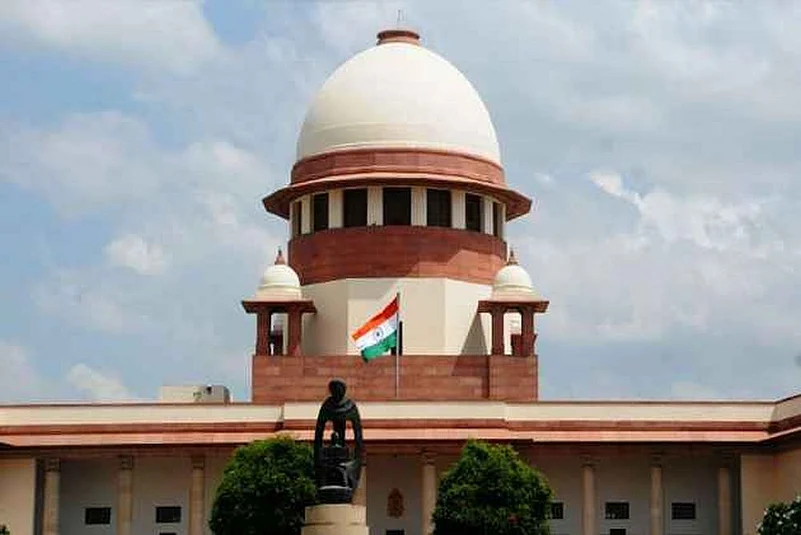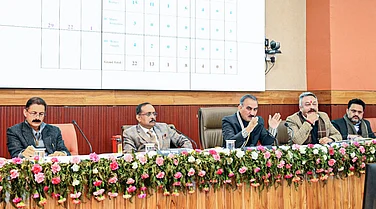The Supreme Court on Tuesday reserved its order on petitions challenging the constitutional validity of Section 377of Indian Penal Code.
A five-judge constitution bench headed by Chief Justice Dipak Misra concluded hearing the arguments on the contentious issue after detailed hearing of four days, which had commenced on July 10.
The bench, also comprising Justices R F Nariman, A M Khanwilkar, D Y Chandrachud and Indu Malhotra, asked the parties to file written submissions in support of their claims by July 20.
The verdict is likely to be pronounced before October 2 this year as Justice Misra would be retiring as CJI on that day.
Section 377 refers to 'unnatural offences' and says whoever voluntarily has carnal intercourse against the order of nature with any man, woman or animal, shall be punished with imprisonment for life, or with imprisonment of either description for a term which may extend to 10 years, and shall also be liable to pay a fine.
The top court had on July 12 said the social stigma and discrimination attached to the LGBTQ community would go if criminality of consensual gay sex is done away with, while maintaining that it would scrutinise the legal validity of section 377 of the IPC in all its aspects.
The court had observed that an environment has been created in the Indian society over the years that has led to deep-rooted discrimination against the community which has also adversely impacted their mental health.
Earlier, the government had said it leaves it to the apex court to test the constitutional validity of section 377, urging that issues like gay marriages, adoption and ancillary civil rights of LGBTQ should not be dealt by it.
Taking note of the Centre's submission that other issues like gay marriages, adoption and ancillary civil rights of LGBTQ community should not be dealt, the court said it was not considering all these issues.
The bench had said it would test the validity of the law in relation to the consensual sexual acts of two adults and if it decides to strike down the penal provision then it would remove "ancillary disqualification" of LGBTQ community members which can join services, contest elections and form associations.
(Inputs from PTI)


























